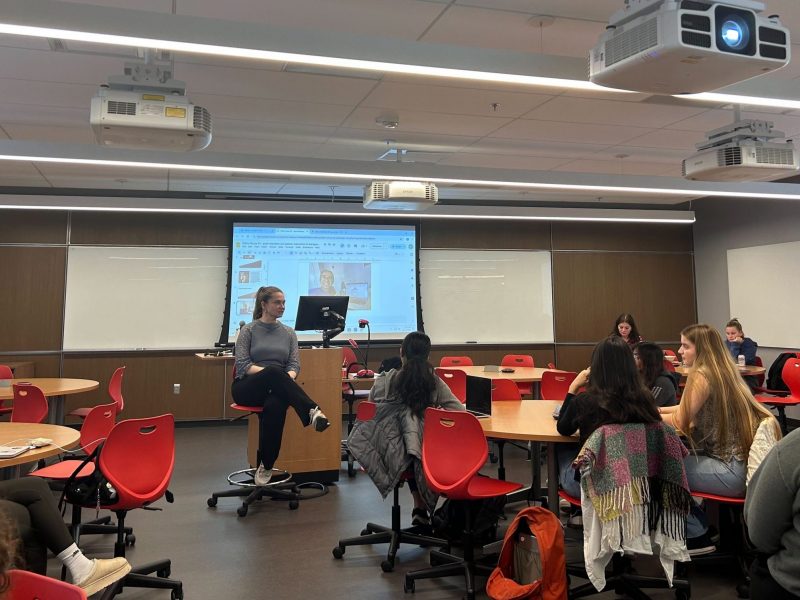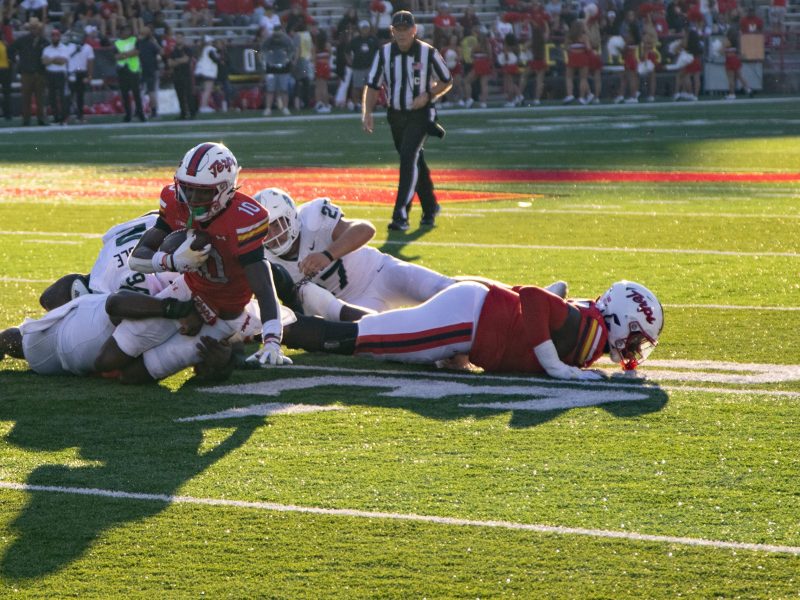After confiscating about 6,000 lewd videos and images of pre-pubescent females, the state of Maryland recently charged a university student with possession of child pornography, an occurrence the Office of Information Technology said is rare at the university.
After being postponed in September, yesterday’s trial against Benjamin Aurich lasted only a few minutes before the judge granted a 90-day continuance for Aurich to undergo a psychiatric evaluation and for both parties to attempt to reach a plea agreement.
“This is an unusual case for us,” said University Police Maj. Cathy Atwell. “There are not many cases like this on [the] campus.”
Atwell said although there isn’t a resident population of children on the campus, the pornography — some of which included infants — was a concern because Aurich’s involvement with it can lead to other crimes.
He was first discovered looking at child pornography in spring 2002 when senior government and politics major Dan Ross, his roommate in Easton Hall, found some of the files on his computer.
“Because his computer was in the corner of the room and hard to get to, he often used my computer,” Ross said. “So when my computer didn’t work, I jumped on his and tried to download files off Kazaa and found a laundry list of child pornographic files.”
Ross confronted Aurich about his discovery, but Aurich quickly defended himself by saying he was using the pornographic files to play a prank on a floormate, according to court documents. Ross said the floormate was often harassed by students in the dorm, leading him to believe Aurich was telling the truth.
A year and a half later in Aurich’s new residence in Montgomery Hall, Bob Salera, a junior criminology and criminal justice major and one of Aurich’s roommates discovered more pornographic files. Salera was surfing the net to pass time on the defendant’s computer when he discovered a suspiciously out-of-place folder titled “youth” on his desktop, according to court documents.
Salera and Aurich’s roommate, Vassili Demergis, a junior mathematics and physics major, opened the file, which contained more than 1,000 pornographic images of children.
“We talked about it then but didn’t do anything right away,” said Salera. “We wanted to think about it. We didn’t know exactly what to do.”
A couple weeks transpired and the two friends revisited the folder, which had doubled in size, Demergis said. The students then sent an anonymous tip via e-mail to the FBI, but weeks passed without a response. Demergis sent another e-mail to the FBI after the content of the “youth” folder grew to nearly 5,000 files, and then sent an e-mail to OIT.
OIT adhered to standard procedure involving criminal activity and immediately forwarded the e-mail notification to the University Police, said OIT Security Officer Gerry Sneeringer.
University Police Detective Paige Miller was assigned to the case, and police officers had Demergis move out of Montgomery Hall and into the University Inn and Conference Center, where he spent three days studying for finals in December 2003 while waiting for Aurich to move out of the dorm.
On December 16, after receiving Sneeringer’s e-mail, Miller applied for and received a search warrant for Aurich’s dorm room and then met with Demergis and three University Police officials while Aurich was out of the room, court documents state.
Unexpectedly, however, Aurich returned home while they were in the room.
Demergis said he sat nervously on the couch to avoid confrontation, but Miller took Aurich down to the police station for questioning. Aurich acknowledged the folder, but told Miller that he unknowingly downloaded them via an online news group, according to court documents.
After submitting the evidence — a total of about 6,000 videos and pictures of child pornography — to the Prince George’s County Computer Forensic Unit, Miller met with an assistant state’s attorney to discuss the case.
The state’s attorney’s office officially charged Aurich with possession of child pornography on March 17, 2004.
An assistant state’s attorney convinced Demergis, Ross, Salera and Kristjan Justesen, a senior electrical engineering major and floormate of Aurich’s in Easton Hall, to testify before the court. However, because of the 90-day continuance and the nature of the subsequent plea bargain hearing, the students will never take the stand.
“In this situation we tried to balance out the good of society, interests of the state and of the individual,” said Ramon Korionoff, the spokesman for the state’s attorney’s office. “He may have made a mistake that can be corrected through treatment.”
The psychiatric evaluation to be executed within the 90-day continuance may be a defense strategy to exonerate Aurich from criminal responsibility, Korinoff said.
“The psychiatric evaluation may be used to abate criminal charges and dub the defendant not criminally responsible,” said Korionoff. “But it doesn’t sound like its going to be the case in this matter.”
Several of Aurich’s peers urged him to seek therapy, Ross said.
“I knew Ben better than anyone else at the university,” Ross said. “He was somewhat anti-social and has always seemed somewhat troubled. He doesn’t always seem to know what’s right and wrong and often displayed improper judgments.”
Although unlikely to be the result of the plea agreement, the maximum sentence for a first-offense misdemeanor charge of possession of child pornography is a year in jail, a fine of $2,500 or both. Aurich was officially charged with six counts of the crime.


